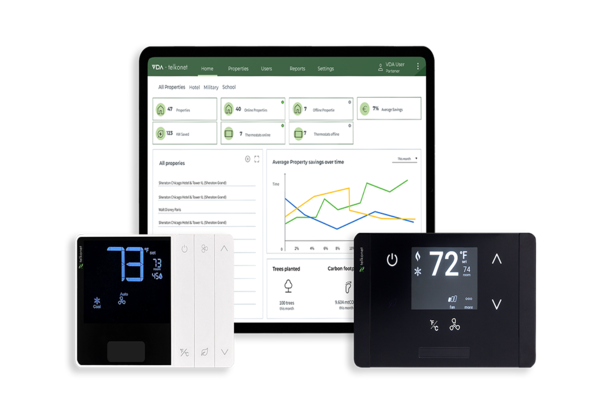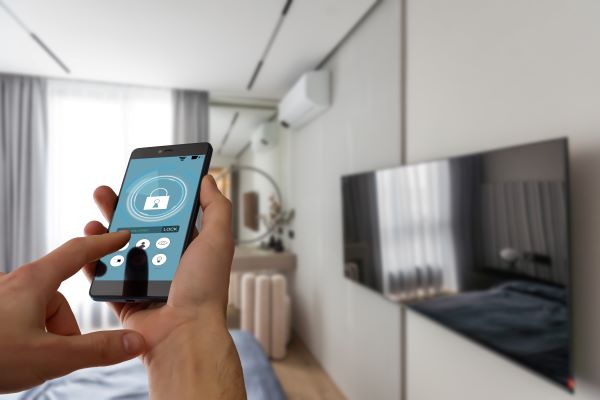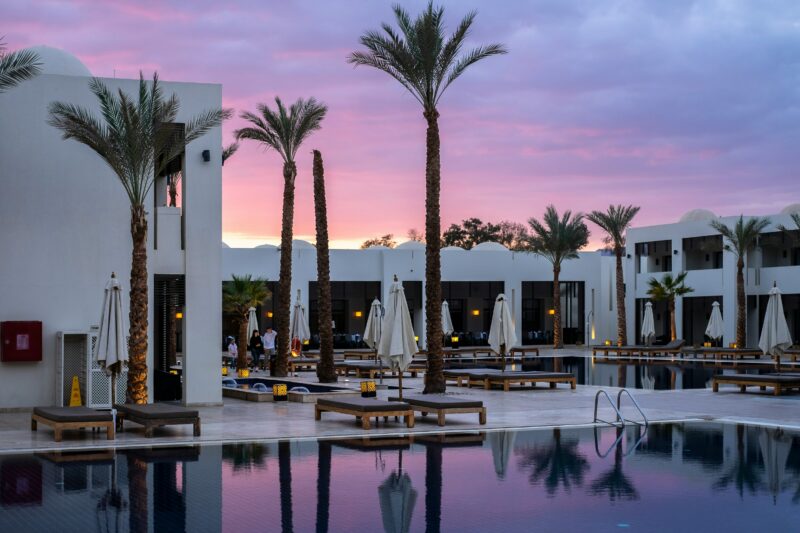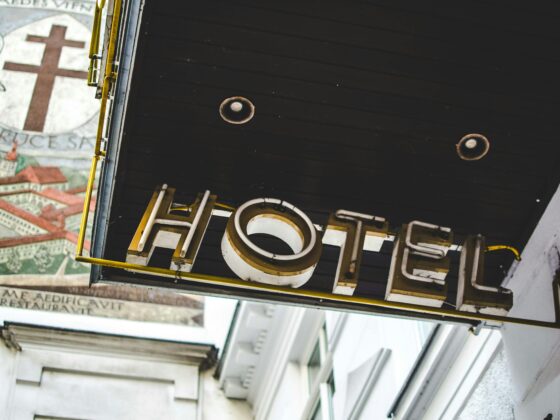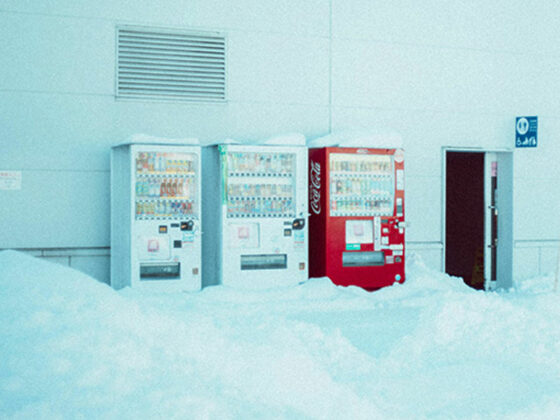A guest walks into a hotel room… it sounds like what could be the start of a corny joke, but it’s no tease for hotel owners.
Smart technology, which allows for things like energy automation, not only improves the guest experience, but can save hotels thousands of dollars a year. Energy is the second-highest operating expense for a hotel outside labor. And that’s the bottom line.
By integrating smart technology into hotel rooms, properties can streamline operations, enhance guest satisfaction and reduce costs— all while creating a modern, convenient environment.
There are a handful of companies that provide the technology needed to turn a hotel room from a money pit into a taut cost-saving space that leaves a hotel owner with more money in their pocket at the end of the month.
1. Honeywell
Headquarters: Charlotte, N.C.
Website: honeywell.com
By the 1900s, Honeywell was manufacturing thermostats and automatic controls for heating systems. The Honeywell brand is synonymous with indoor comfort. In 2012, it acquired INNCOM, a manufacturer of software-based energy management solutions and in-room controls or multiple industries, including hospitality. Today, its INNCOM Energy Management System is designed to manage, control and deliver data tied to HVAC energy use. And with many hotel rooms going empty at any given time, the technology is designed to control and automate smarter guestroom HVAC energy use. In fact, while a traditional thermostat delivers 0% energy savings, a networked EMS, Honeywell notes, can produce savings as high as 40%. Neha Jaitpal, global GM of Honeywell Hospitality, calls it the boiler room to the guestroom vision, which begins with guests and extends to owners and operators—its value proposition inclusive of all cohorts. “We understand the basics that are required to automate a building and that has become even more critical post-pandemic,” she said.
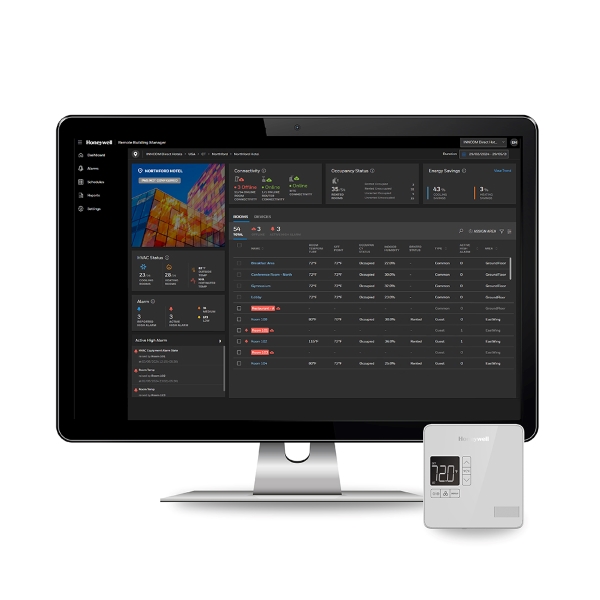
2. Verdant by Copeland
Headquarters: Saint-Laurent, Quebec
Website: verdant.copeland.com
Fifteen years ago, Verdant was a start-up company in the energy-management segment focused on hospitality. Ten years later, it was acquired by Emerson. Then came the pandemic. “It was rough waters,” remembered Michael Serour, VP & GM, Verdant by Copeland. (Verdant is a business unit inside of Copeland.) Three years later, Blackstone took a controlling interest in Emerson. Today, Verdant technology is in 8,000 hotels globally and growing, which makes sense. “If you’re an owner, your main motivation is savings,” Serour said. “There’s no downside,” for instance, “of an empty room not blasting unnecessary heating or cooling.” Serour said that Verdant can reduce in-room heating and air conditioning run times by around 40%, which equates to as much as a 20% reduction in a hotel’s overall energy bill. “It’s all about ROI,” he said, adding that an owner can begin to see cost-saving results in as little as a year.
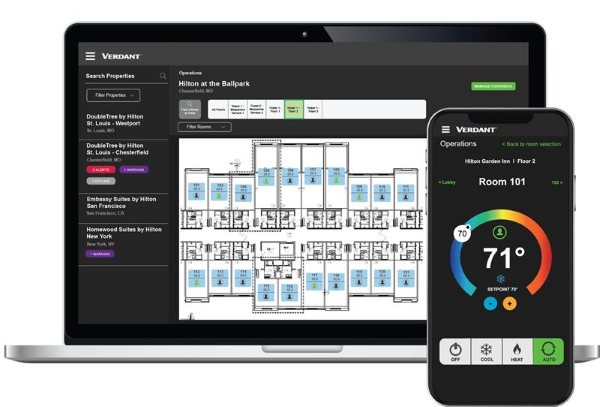
3. Loxone
Headquarters: Kollerschlag, Austria
Website: loxone.com
It’s pretty simple according to Loxone: Building automation creates impressive guest experiences while increasing profitability. That’s the basis behind its “all-in-one solution” that allows control of a hotel’s technical systems. “A primary concern is increasing efficiency and reducing costs,” said Rüdiger Keinberger, CEO of Loxone. Consider its campus in Austria: It saves 70% on heating and cooling energy and 80% on lighting energy compared to the industry average, Keinberger claimed. “Automated systems create a unique ambiance with perfectly coordinated lighting moods, soundscapes and a pleasant room climate in both rooms and public areas,” he said, adding that when choosing a system, hoteliers should ask vendors questions, like how it can integrate with existing technologies. “Compatibility, scalability and user-friendliness play a decisive role,” Keinberger said.
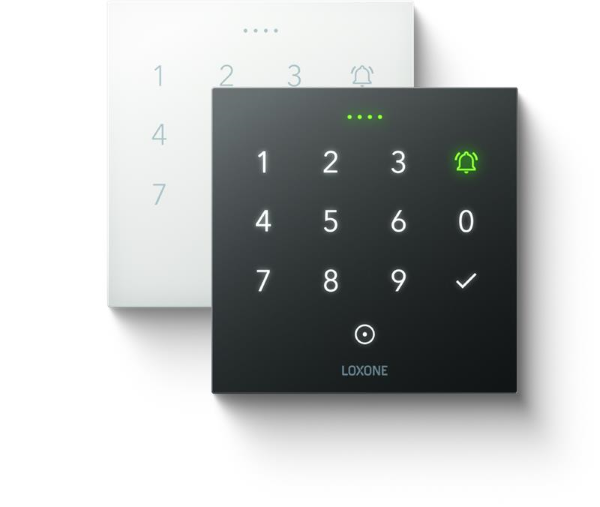
4. Telkonet
Headquarters: Pordenone, Italy
Website: telkonet.com
In the realm of automation, it comes down to numbers: specifically, the savings a hotel can achieve through the installation of smart technology. According to Italy-based Telkonet, and data from the 4,500 hotels that use its energy management system, automation increases operational efficiency, grows revenue, reduces costs and increases asset value. “It streamlines processes,” said Barbara Alvino, marketing manager for Telkonet, resulting in a 20% reduction in labor hours and $300,000 in annual savings. “Time saved allows operators to focus on guest-centric activities,” she said, adding that its EMS helps hotels achieve up to 37% in energy savings alone or around $171,000 annually for a hotel with more than 1,000 rooms. All along, it adds value to the real estate, reportedly as much as 15%. “Automation not only improves energy efficiency but also provides a quick and tangible economic return for the property,” Alvino said.
